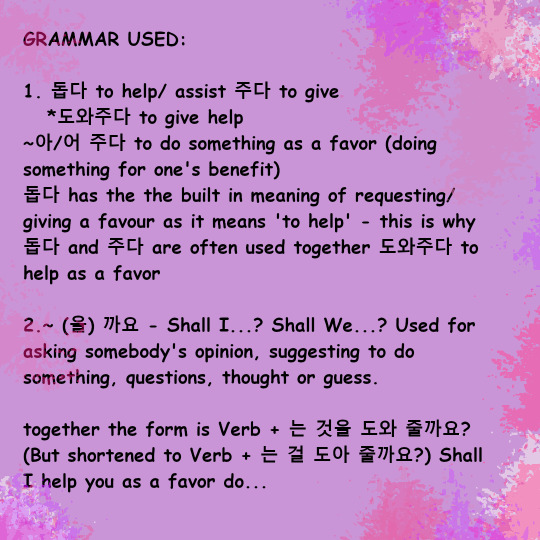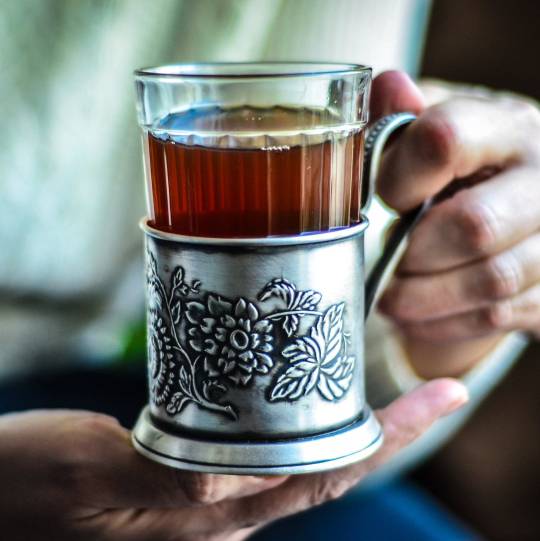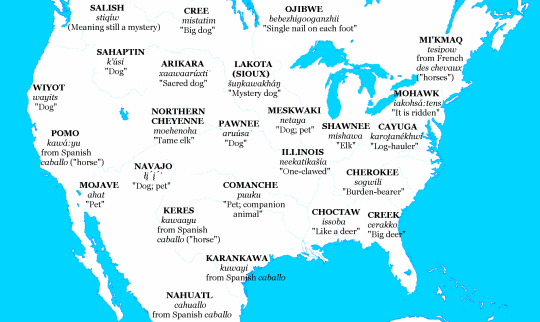Note
please tell me some cool random facts about lingustics!!!
Hi anon!!! Ahh thank you so much for allowing me to ramble about linguistics <3 this got super long I hope you don’t mind!! I’m just really passionate about this topic lol but here are some of my favorite random facts:
Languages see colors differently! Russian, for example, has two different words for light blue (голубой) and dark blue (синий), whereas in English we classify them both as “blue”. Weirdly, English does distinguish between dark red and light red (“pink”). But some languages even group colors like green and blue together! Vietnamese, for example, uses the same basic word for both (xanh) and then additional descriptors for whether it’s light blue (sky), dark blue (ocean), or green (leaves). There’s a lot of debate on how language affects the way we see colors because of this. This is called linguistic relativism and it’s honestly fascinating! (Sources: x, x, x)
You know that meme with the trolley problem? You’d probably think you’d give the same answer no matter what, right? But some studies have found that our moral decisions are sometimes affected if we’re speaking a second language! The theory behind this is that:
The difficulty of speaking a foreign language makes people pause and give the question more thought. Interestingly, this usually relates to utilitarianism! So, in the trolley problem, people speaking a foreign language are more willing to sacrifice one person to save many, for example, and/or
Listening/reading in a foreign language often produces a lower emotional response than your native language! So, if you picked up your native language from your family, friends, community, etc. it has a LOT more emotional connections than a foreign language you learned in a classroom, for example. And these emotions can affect the way you make decisions!
This is actually fascinating because it shows that our responses to moral dilemmas are not just about our values. They can also be affected by the language we’re using!
Now imagine all the forums like the United Nations etc. where people from all over the world are constantly deciding on moral issues. How many of those decisions have been affected because they’re being discussed in a foreign language? Makes you think, right? (Sources: x, x)
Blind people actually gesture when they speak. So even people who have never seen someone else gesture will do it themselves, with the same frequency and types of gestures as sighted people!
Not only this BUT different languages will actually use different types of gestures! So for example, to gesture that someone ran into a house, English speakers typically use one gesture, whereas Turkish speakers tend to separate gestures for both motion (running) and path (into a house). And the research showed that both blind Turkish and English speakers gestured in the same way as their respective sighted speakers!
This is honestly so cool because it means 1) there’s something inherent about languages that makes people gesture to convey meaning! And 2) there's also something about the type of language itself that makes people gesture differently across the world. (Sources: x, x)
Weirdly, spoken filler words like uh or uhm usually appear before nouns! As opposed to verbs, for example. The reason is that nouns typically convey additional information, so we normally have to pause to search for the right word.
And precisely because we usually pause before nouns, this likely affects the way grammar evolves over time! This makes it more difficult for nouns to evolve to complex forms. In German for example, it’s much more typical to add prefixes to verbs rather than to nouns (ent-kommen, ver-kommen, be-kommen, etc.)
Also this is completely anecdotal BUT when I was attending a university in Germany, I was shocked that the professors barely seemed to pause or use filler sounds as opposed to my native language. I thought a lot about this and the way I could explain it was like the language in the movie Arrival, where writing a word means you have to know how it ends. Some sentence structures in German actually end with the verb, so you have to know how your sentence ends when you start speaking! And that leaves less room for pause. So, the use of those filler words before nouns could change depending on the sentence structure of the language! Again, this is entirely my own experience, but it sort of matches up with the study, with less pauses before verbs. (Source: x)
Sort of related to the point above, but filler words also change a LOT depending on the language! Some languages use mostly meaningless sounds like e in Spanish or euh in French. But some others like German often use modal particles, which are words that actually modify the meaning! But they’re mostly used for emphasis rather than actual meaning. Such as schon (kind of / actually) or eigentlich (actually). Here's a Wikipedia link with a list of some of the most common ones, it’s honestly one of my favorite features of spoken language: (x)
Finally, I covered mostly scientific studies, but I also love works of fiction that touch on linguistics! If you’re interested in this topic I’d recommend:
Manhunt on Netflix, a series that showcases forensic linguistics
Arrival, the movie I mentioned above, is overall a pretty cool sci-fi take on how language influences the way we think and relate to the world
Last but not least, one of my all-time favorite short stories is Tlön, Uqbar, Orbis Tertius by Jorge Luis Borges. It’s about a fictional country where the language denies the existence of nouns. One hemisphere focuses on verbs and the other on adjectives. Which means there are no objects, only conditions, and therefore no object permanence. The original is in Spanish, but I found a link to an English version here. I honestly LOVE this one!
And if you're looking for even more educational content, I'd recommend you check out Tom Scott's videos on language. They're pretty well researched and he explains the topics in a very simple and clear way! (Link: x)
Again thank you for indulging me anon!! I could honestly go on even longer about linguistics but I have to stop at some point lol
Note: This is entirely a hobby of mine so if any linguists or native speakers out there see I’ve made any mistakes, please feel free to correct me!
2K notes
·
View notes
Note
what are some of the most specific verbs you can think of
I realized halfway through that you were talking about REALLY specific verbs and by then it was too late.
So most of these are going to be verbs that you can actually use, just often in really specific situations. Many have other meanings today rather than what they actually meant at the time, but that's just how language is
mantear = to toss someone/something in a blanket (usually in celebration)
agonizar = to die slowly, to be dying
santiguarse = to make the sign of the cross
campeonar = to win a championship
enmadrar(se) = to become very close/attached to one's mother
afrancesar = to become like the French, to take on French mannerisms and culture, to act French
zarpar = to set sail
izar = to hoist, to raise a flag, to raise up (via ropes usually)
aguar = to water down, to add water to
acorazar = to armor up [lit. it meant "to put on a breastplate", but it has come to mean "to cover in armor" or "to add plating" similar to the verb blindar]
enramar = to cover in branches / to put in the branches
degollar = to slit someone's throat
añejar = to age [often said of wine or cheese] / to make something old
elaborar = to brew [lit. "to elaborate" or "to work on", it comes across as "to brew" for alcohol or when you're making soups or stews etc or just anything that takes a long time to get right; it kind of more literally means "to work on over a long period of time", that kind of "elaborate", but it can also mean "to elaborate" as in "to add more details"]
defenestrar = to dismiss / to throw someone out of the window
asomar(se) = to start to appear, to peek out, to lean out
[it literally means "to show up upon/above", but it can be "(for a storm) to brew", or "to lean out of a window"... it also shows up in the expression hablando del rey de Roma (y por la puerta se asoma) which is "speak of the devil (and he shall appear)", but literally "speaking of the king of Rome and he leans in the doorway"]
embarrar = to cover in mud / to muddy / "to sling mud", "to play dirty"
enlodar = to cover in mud
encanecer = to get gray hair, "to go gray"
ahorquillar = to make something forked / to make something look like a fork
velar = to stay awake / to stand vigil
[it also means "to put on a veil", but velar as "to stay awake" is literally just no dormir "to not sleep", so it can be "to stay up all night"; the idea is related to "vigil" as in "the people who stay awake to keep watch", so it can be understood as to defend or to watch over someone especially at night]
arborizar = to forest, to plant trees
dactilografiar = to type [an old word; it literally means "to write with one's fingers", today it's usually teclar or tipear or just escribir but this especially was when people used typewriters]
emboscar = to ambush [lit. it means "to put in the woods" or "to (hide) in the woods"]
soslayar = to lay something on its side / to bypass
rociar = to spray, to sprinkle [lit. "for it to be dewy" or "for there to be dew"]
compincharse = to conspire [lit. "to become accomplices", "to accomplice oneself"]
pavonear(se) = to peacock, to parade around [lit. "to peacock", where it's related to el pavo real "peacock"; sometimes it's "to strut" and is compared to the walk of a turkey or peacock]
cabalgar = to go riding (on horseback)
encabalgar = to enjamb [in poetry], to use an enjambment / to rest upon
desengañar(se) = "to come to one's senses", to become disabused of a notion [lit. "to un-fool oneself"] / to become disappointed (by the true reality of a situation, usually)
morar = to dwell
ensimismar(se) = to become withdrawn, "to go into one's own little world"
ladrar = for a dog to bark, to bark
mugir = for a cow to moo, to moo
maullar = for a cat to meow, to meow
empalagar = to cloy, to be sickly sweet / "to lay it on thick", "to be overly kind/sweet"
engatusar = to trick (with flattery)
empanar = to bread, to coat in breadcrumbs
cecear = "to lisp" [it's related to the pronunciation of C, Z, and S; where el ceceo is excessively lisping for some people, but regionally that's an accent usually in parts of Spain]
ahijar = to adopt (a child), to care for a child as if they were your own
prohijar = to adopt (a child)
amadrinar = to be a godmother, to sponsor a child (as a woman)
amadrinar(se) = to become a bridesmaid
apadrinar = to be a godfahter, to sponsor a child (as a man)
apadrinar(se) = to be a groomsman, to be the best man at a wedding
amainar = for wind/storms to die down
[can also be used for headaches or panic attacks, generally something involuntary or a force of nature "dying down" or "stopping"]
peregrinar = to go on a pilgrimage, to make a pilgrimage
veranear = "to summer", to spend a summer somewhere
untar = to spread or smear (butter/cream cheese, anything spreadable)
amistar = to make friends, to befriend
enemistar = to make enemies
empollar = to incubate, to sit on eggs [lit. "to en-chicken" and I think that's beautiful]
parpadear = to blink [lit. "to eyelid"]
enchilar = to make spicy [lit. "to add chilis to"; it also means "to annoy", "to bother", "to make someone angry", or to feel other negative emotions in some countries - probably because "spicy" is related to "anger" or feelings of resentment in some expressions]
desahogarse = to vent, to unburden oneself, to talk about one's problems [lit. "to un-drown oneself"]
canturrear = to sing to oneself, to hum, to sing under one's breath [I think this is a mix of cantar "to sing" and tararear "to hum"]
azogar = to cover in silver / to fidget
[lit. related to el azogue "quicksilver" which is the old word for mercury, it's believed azogar as "to twitch" or "fidget" is related to what people would do if they were suffering from mercury poisoning like from cinnabar]
encapuchar / encapotar = to cloak, to put a cloak on
embutir = to stuff, to pack / to stuff oneself, to pack food in your face, to wolf down
empachar, empapuciar, empapujar, empapuzar = to be sick to your stomach / to get indegestion / to eat (to the point of feeling sick) / "to be fed up", "to be sick of"
apedrear = to stone, to throw stones at someone (to death usually)
apellidar(se) = to take on a surname, to take a last name
[it's also "to be called" same as llamarse but for last names - like "my last name is"]
ningunear = to give someone the cold shoulder, to ignore someone [lit. "to nobody someone"]
desamar = to fall out of love
romancear = to translate into a Romance language [usually Spanish and/or Latin; but it means something a bit different now]
callejear = to wander the streets, to gallivant
algodonar = to stuff with cotton, to bunch together a lot of cotton / to insulate or block up (usually with cotton)
esquilar = to shear (sheep) / to cut off a lot of hair, to shear
desquiciar(se) = to become unhinged [lit. it means "to come off its hinges" for doors; but it came to mean "to lose one's mind" the same way "unhinged" does in English]
encarpetar = to file away / to put in a folder / to shelve / to bury in paperwork
merendar = to have a snack / to have tea time [lit. "to have la merienda" which in some countries is translated as "a snack" or "high tea", but it's one of the meals of the day like a light lunch or second breakfast kind of thing]
anegar(se) = to flood, to become flooded/inundated
escopetear = to shoot with a shotgun
desacralizar = to demystify / to remove the holy or godly quality of something, to remove what's intimidating about something
encastillar = to fortify / to place or lock in a castle
desafinar = to be off-key, to be out of tune / "to be/sound out of whack" [usually said of the voice or musical instruments]
desahuciar = to evict / to declare something or someone to be a lost cause / to declare someone is terminally ill
trajear = to put on a suit / to look nice / to get dressed up
neologizar = to make up new words or expressions
Also, there's embarcar and desembarcar which are "to embark" and "to disembark"... but literally it means "to get on a boat" and "to get off a boat", which now extends to other stuff
Also very specific - aterrizar is "to touch down" or literally "to land on earth", so it now applies to planes "landing" or rockets coming back. But in that same vein:
amerizar = to land in the ocean
alunizar = to land on the moon
amartizar = to land on Mars
And so on... so you could say ajupiterizar for "to land on Jupiter", or aplutonar "to land on Pluto" in theory
You also have a lot of cooking verbs like this - encebollar is "to cover in onions" or "to add onions", or a very specific but useful one is hornear "to bake" which is literally "to put in the oven". There's also endulzar "to sweeten" or salar "to salt". There's also aceitar or enmantequillar which are "to oil" or "to butter", related to untar... though I believe both aceitar and untar can also mean "to bribe" [standard is sobornar] sort of like "to grease palms" in a way.
...Things that are really specific but also commonplace because of cooking
Related but you have verbs like almibarar "to cover in syrup" or "to honey", or almidonar "to starch" for clothes where it's "to add starch"
I would also add two that are in some contexts really specific - acostar(se) which is often "to sleep" or "to have sex with" literally means "to lie down on one's side"; and tumbar(se) which is also "to sleep" or "to go to bed" generally means "to lie flat on one's back" which I think is related to how bodies were placed in tombs [tumbas] hence the name
Also important note: there are many words that gained additional meanings over time, especially in technology. The prime examples are encender and apagar where encender meant "to light a fire", but it came to be "to turn on (an electronic device)" and "to turn on the lights" - similarly apagar meant "to extinguish (flames/a candle)" and now also means "to turn off electronics/lights"; these actions probably came from lighting lamps or candles etc but became different over time
Another good example is navegar "to navigate" which originally meant "to sail in a ship" which came to mean "to navigate", and also today means "to explore" or "to surf the web online" or "to browse"
And of course, who could forget desparangaricutirimicuarizar which is from a tongue twister involving a town and a volcano, don't worry about it
156 notes
·
View notes
Text
Why learn a foreign language, you ask?
Understanding and speaking the language will at some point inevitably make you feel like a spy/important person… - Bonus points for when you can eavesdrop on public conversations.
Have those fun little moments when you catch mistakes in your target language on signs, merchandise and in media. (Especially if it’s Japanese or Chinese… People love to butcher those).
Imagine what your crush would think if they suddenly realize you speak a different language 3 months after meeting you. They may gasp, exclaim that you’re full of surprises, and go weak in the knees from your oh-so-mysterious demeanor (bonus points if it’s French or Italian).
Fulfill your study aesthetic dreams, because you finally have something to theme a new blog around. Time to splurge on a pretty notebook and nice pens and work on that handwriting. Get the desk set up nice and cute, grab yourself the most beautiful coffee mug you can find. You’ve just become that girl. And you love it. Can’t forget to mention the messy buns, glasses (don’t have to be prescription), cat ownership and plants.
Increase your chances of escaping eternal loneliness TEN FOLD because learning a language just opened doors to millions of people who couldn’t speak yours.
Your personality may shift depending on which language you’re speaking, due to cultural and linguistic differences. So, by learning a new language, you will not only become more knowledgable about the world around you, but about yourself and people in general.
Accurately understand books, shows, and all sorts of media in your target language. (No more relying on suspicious subtitles).
Feel satisfied in knowing that you’ve picked up quite a fun and rewarding hobby that can and will expand your life in every possible way.
435 notes
·
View notes
Text
Semester in SK: Ordering Coffee
안녕하세요 여러분! Here is yet another post including some phrases that have been helpful to me during my semester in Korea so far–this one is about ordering drinks at a cafe! I hope you find it useful as well :) You can find this post on my Instagram as well here. 화이팅!








My masterlist
Join my Discord chat here to practice Korean with others!
Follow me on Instagram here for more Korean content!
Get Drops Premium using my affiliate link to expand your Korean vocab!
Check out my Ko-Fi to support this blog and my studies! Thank you for your generosity!
84 notes
·
View notes
Text
oopsie wrong blog the first time
anyways update the goal has been reached!! thank you so much everyone who took part, i really appreciate your input!
hello langblr! and anyone interested lol
i am conducting a survey for school on the topic of learning foreign languages online (specifically through social media) and thought this would be a great place to gather some data! all of the answers will be anonymous. (answers preferred in english or russian only since those are the languages i speak best right now T_T)
https://forms.gle/4ohABYg4z5ug1qYD8
thank you in advance!
UPDATE: thank you so much everyone for your answers! once the responses hit 100 i will probably stop taking them though lol
i never expected this much attention and i really can’t thank you guys enough, seriously i love this community lol okay have a good day everyone reading
im at 98 rip
Keep reading
70 notes
·
View notes
Text
Korean Grammar Study - Shall I Help You With...?





*아침밥 not 아참밥 I made a slight mistake on the last slide...oops!
As I am not 100% fluent in Korean there maybe a few mistakes
I hope this helps with your studies!
As always Everyone,
Please stay safe and Happy Studying! XX
Background Image in first card is sourced from unsplash.com however I have edited it.
31 notes
·
View notes
Text
still stuck at 98😢 plz just two people to get nice percentages
hello langblr! and anyone interested lol
i am conducting a survey for school on the topic of learning foreign languages online (specifically through social media) and thought this would be a great place to gather some data! all of the answers will be anonymous. (answers preferred in english or russian only since those are the languages i speak best right now T_T)
https://forms.gle/4ohABYg4z5ug1qYD8
thank you in advance!
UPDATE: thank you so much everyone for your answers! once the responses hit 100 i will probably stop taking them though lol
i never expected this much attention and i really can’t thank you guys enough, seriously i love this community lol okay have a good day everyone reading
im at 98 rip
Keep reading
70 notes
·
View notes
Text
This blog is pro-trans. Fucking love trans people. If there are any TERFs following me, get lost.
31 notes
·
View notes
Text
ADHD secret power where you translate a whole episode of your current hyperfixation into your target language. Try today.
#this but its from english into my native language#side eyes that one guy on youtube who made multiple major errors in his translation
110 notes
·
View notes
Text
hello langblr! and anyone interested lol
i am conducting a survey for school on the topic of learning foreign languages online (specifically through social media) and thought this would be a great place to gather some data! all of the answers will be anonymous. (answers preferred in english or russian only since those are the languages i speak best right now T_T)
https://forms.gle/4ohABYg4z5ug1qYD8
thank you in advance!
UPDATE: thank you so much everyone for your answers! once the responses hit 100 i will probably stop taking them though lol
i never expected this much attention and i really can’t thank you guys enough, seriously i love this community lol okay have a good day everyone reading
im at 98 rip
ok update lol i never expected this to get this much attention but thanks for the replies everyone!! im not stopping the survey yet just wanted to express gratitude lol youre awesome
and. nice

#russian langblr#langblr#spanish langblr#english langblr#survey#language learning#learning languages#languages#data#idk lol
70 notes
·
View notes
Text
sometimes i forget that not all people know about the (love) letters between Dostoevsky and Walikhanov. so, i want to share a couple of quotes from those letters:
Shoqan Walikhanov to Dostoevsky, 1856: ‘Those few days spent with you in Semipalatinsk are so dear to me, that now I only think of how else to visit you. I am not a master in writing about feelings and attraction, but I think there’s no need. You, of course, know how attached I am to you and how I love you.’
Dostoevsky’s response: ‘You write so tenderly and affectionately, that it’s like I see you in front of me once again. You write to me that you love me. And I announce to you without ceremony that I’ve fallen in love with you. I have never felt such an inclination for anyone, not even excluding my own brother, as I did for you, and God knows how it happened.
There could be a lot said here in explanation, but why praise you! And you surely and without proof believe my sincerity, my dear Walikhan, but if one were to write 10 books on this topic - they wouldn’t write anything, feeling and attraction - are inexplicable things.’
44 notes
·
View notes
Photo




The podstakannik (Russian: подстака́нник, literally “thing under the glass”), or tea glass holder, is a holder with a handle, most commonly made of metal that holds a drinking glass (stakan). Their primary purpose is to be able to hold a very hot glass of tea, which is usually consumed right after it is brewed. Podstakanniks appeared in Russian tea culture in the late 18th century, when drinking tea became common in Russia. It is a traditional way of serving and drinking tea in Russia, Ukraine, Belarus, and other Slavic states.
Source for pictures - an etsy store.
7K notes
·
View notes
Photo

204 notes
·
View notes
Photo

Map of Native American etymologies for “horse”. There were no horses in the Americas before the colonists arrived. Native Americans quickly developed new words for this strange animal, often associating them with dogs, their one other domestic animal before contact with Europe.
92K notes
·
View notes
Photo

A classic table of accidental lexical gaps in English, from Language Log.
41K notes
·
View notes
Text
Russian winter holidays' features - part 3. New Year meals
As I said in the 1st post of this series, most Russians prefer to celebrate the New Year at home. So you gotta know what Russian home parties look like. Generally they consist of what is called застолье [zastol'e], from «за столом» [za stolom] - "at the dinner table". It may be translated as "a banquet", but it's not precise, because what we call банкет [banket], "a banquet" is at restaraunt or cafe only, but застолье usually is at one's home.

So, one of the most important parts of celebratond the New Year is festive meals. Many (maybe even most) families in Russia have a tradition to cook lots of food for the New Year table. LOTS. OF. FOOD. In Russia we have the таз [taz] word - it means a large bowl, used for washing clothes or the like. So, the popular phrase of тазик салата ("bowl of salad") very often is not an exaggeration, especially when застолье is set for big family with many relatives. And that's not about some light vegetable salad! Below is described, for example, traditional Russian Olivier salad, which is very caloric.
Also Russian families often stock up delicacies for the New Year table. Sometimes they start doing it in month or more before. That habit definitely goes from USSR, when deficit of diverse and tasty foodstuff made people hunt for some копченая колбаса [kopchyonaya kolbasa] - summer sausages - or красная рыба krasnaya ryba], lit. "red fish" - salmon. For it was rare and expensive, it was not everyday food, so it was kept for a festive table to delight the hosts and surprise their guests. Today you can buy various delicacies in almost any store everyday (unless you're living in a remote country). But the tradition is still alive. So we make jokes of this, saying that when our fridge is stuffed with food before December 31st, we say: Ничего не трогай, это на Новый год [nichego ne trogai, eto na novyi god] - "do not touch, it's for the New Year"; and when the same is after it, we say: Ешь скорее, а то все испортится [esh' skoree, a to vsyo isportitsya] - "c'mon, hurry up to finish it, otherwise it will get rotten")) And we actually consume the food left from the New Year celebration at least the first 2-3 days of January, that's true))

The caption is: The "don't touch , it's for the New Year" season is officially open
So, we have reviewed the meal issue in summary, so let's see, what kinds of food have almost every Russian family on their festive table.
1. Салат оливье [salat oliv'ye] - Olivier salad

This dish has become a real symbol for the New Year celebration in Russia. Idk why, maybe because sausage in it's recipe was one of meat products that one could get rather easily. The fact is the original Olivier salad by recipe of the beginning of XXth century has nothing to do with modern Olivier - quite cheap, easily cooked, nutritive meal.
It's main ingridients are:
some special sausage called Докторская [doktorskaya]. Yes, it descends from "doctor") The point is in early Soviet Russia doctors had been recommended it for dieting instead of other sorts of sausages, cause it's low-fat. It looks like that:

and also:
boiled potatoes
green peas
marinated cucumbers
hard-boiled eggs
boiled carrots
somebody also add green or bulb onions. I don't like onions, so I do not.
Everything diced and mixed, seasoned with mayonnaise.
2. Селёдка под шубой [selyodka pod shuboi]

I've tried hard, but seems there is no appropriate translation for this salad) and the literal is "herring under a fur coat")))) don't worry, ot doesn't include any fur))) "The fur coat" here is a name for the rest of the salad, except herring itself, which is layered upon it. So these layers are:
boiled potatoes (diced or mashed)
onions (diced finely)
boiled eggs (grated or diced finely)
boiled carrots (grated)
boiled beets (grated)
mayonnaise (on every or almost every layer)
And under everything of this - filleted herring, chopped finely. Yummy 😋 Sometimes we make thin layers of everything and repeat them all twice - so it's even more delicious!
3. Нарезка [narezka] (from нарезать, "to slice") - sliced meat and fish


See above of the stocked up delicacies. That's time for them. We usually have at the New Year table at least 2 plates: one with slices of sausages, carbonado, carpaccio etc. of various sorts; other one with slices of salmon and sometimes any other delicacy fish, for ex. butterfish. Sometimes there is also a cheese plate.
4. Красная икра [krasnaya ikra] - lit. "red roe", salmon roe.

A total must-have for the New Year table! Even those who consider оливье and селёдка под шубой a lowbrow food, too heavy and rough, definitely won't refuse some salmon roe on a buttered slice of a baguette. Btw, as you can see, we don't use the salmon (лосось, [losos']) word in it's name. Just "red roe". And famous caviar, a sturgeon roe, is "black roe". Everything is very logical, isn't it?)
5. Мандарины [mandariny] - tangerines

This tradition goes from USSR too. For a long time tangerines had been the only exotic fruit Russian could buy, and only in winter - before the New Year exactly. Today we can buy it every day, but many people remember of them just before the winter holidays. The smell of tangerines is a kinda official New Year smell in Russia) as well as smell ot the New Year fir tree.
6. Шампанское [shampanskoe] - champagne

The essential New Year beverage is, of course, champagne. If one prefers any other wine or strong drinks, he or she may have it at the New Year table, but at least one glass of champagne - right at first seconds of the year - is required. Since 90th we have even "children's champagne" - soft fizzy fruit-flavoured drink in bottles of remarkable shape with special corks. As I refuse alcohol at all for today, I guess I will have such for myself at upcoming New Year party)
That's all the main parts of новогоднее застолье I could remember. Of course that's not all. Every family adds something as they wish. Some have a special festive dish of their own, for example, in our family it's chicken stewed in sour cream. That's a hot meal; another popular hot meal is French meat: it means beef or pork steaks baked with cheese, mushrooms and sometimes tomato, served with mashed potatoes, and idk what does it have to do with France)) But these are details, after all. Anyway, now you know the most traditional Russian dishes for New Year party, and you may have it on your own table if you wish to feel like a real Russian!)
Follow me and read more to know about more Russian New Year features! The next ones will be of the New Year TV shows and movies - so stay tuned!)
20 notes
·
View notes
